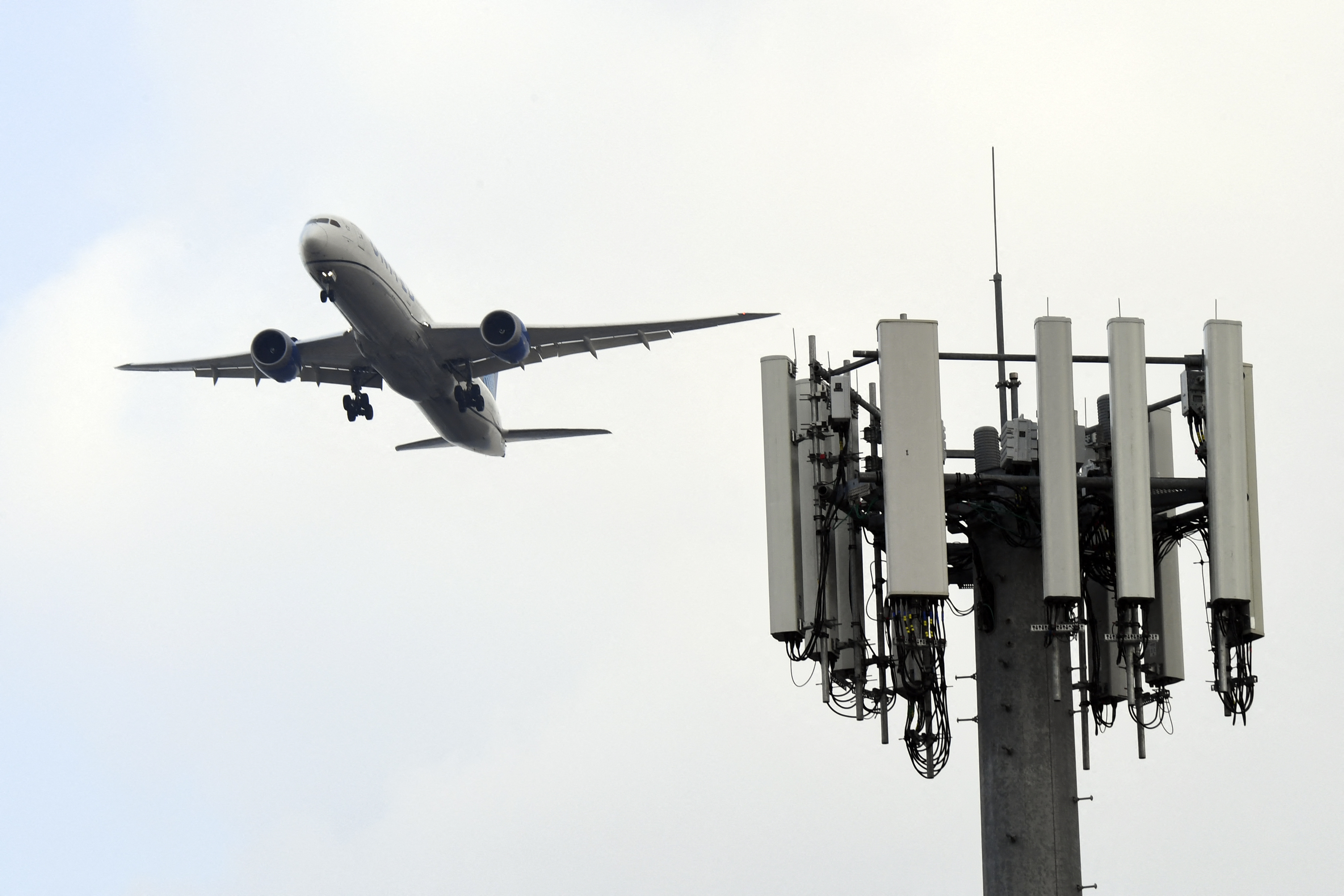FAA says it intends to require 5G compliance from airlines by 2024


A free daily email with the biggest news stories of the day – and the best features from TheWeek.com
You are now subscribed
Your newsletter sign-up was successful
The Federal Aviation Administration is intending to order passenger and cargo aircraft install 5G-safe equipment on all airplanes by 2024, the agency said Monday.
According to the FAA, 5G signals use frequencies that are closer to the ones used by radio altimeters, which determine the aircraft's height from the ground and are critically important when flying in bad weather. As a result, the agency found that these 5G signals can cause the altimeters to potentially issue incorrect flight data.
"Although they may seem minor in isolation such that some may consider them a mere nuisance, these warnings have safety implications over time," the FAA said in a statement obtained by Bloomberg. "As the flight crew becomes more desensitized to erroneous warnings, they are less likely to react to an accurate warning, negating the safety benefits of the warning altogether and likely leading to a catastrophic incident."
The Week
Escape your echo chamber. Get the facts behind the news, plus analysis from multiple perspectives.

Sign up for The Week's Free Newsletters
From our morning news briefing to a weekly Good News Newsletter, get the best of The Week delivered directly to your inbox.
From our morning news briefing to a weekly Good News Newsletter, get the best of The Week delivered directly to your inbox.
As a result of these potential dangers, the agency is requiring all airlines to install 5G-approved technology on their planes. While the exact deadline was not given, Reuters reported that the FAA wants these safeguards fully in place by "early 2024."
While the FAA maintains that the American aviation industry is "the safest in the world," issues with 5G signals interfering with altimeters have led to delays at airports in the past.
In response to the FAA, aviation lobbying group Airlines for America said that airlines were "working diligently to ensure fleets are equipped with compliant radio altimeters, but global supply chains continue to lag behind current demand," adding, "any government deadline must consider this reality."
A free daily email with the biggest news stories of the day – and the best features from TheWeek.com
Justin Klawans has worked as a staff writer at The Week since 2022. He began his career covering local news before joining Newsweek as a breaking news reporter, where he wrote about politics, national and global affairs, business, crime, sports, film, television and other news. Justin has also freelanced for outlets including Collider and United Press International.
-
 Corruption: The spy sheikh and the president
Corruption: The spy sheikh and the presidentFeature Trump is at the center of another scandal
-
 Putin’s shadow war
Putin’s shadow warFeature The Kremlin is waging a campaign of sabotage and subversion against Ukraine’s allies in the West
-
 Media: Why did Bezos gut ‘The Washington Post’?
Media: Why did Bezos gut ‘The Washington Post’?Feature Possibilities include to curry favor with Trump or to try to end financial losses
-
 Buffett: The end of a golden era for Berkshire Hathaway
Buffett: The end of a golden era for Berkshire HathawayFeature After 60 years, the Oracle of Omaha retires
-
 Tariffs have American whiskey distillers on the rocks
Tariffs have American whiskey distillers on the rocksIn the Spotlight Jim Beam is the latest brand to feel the pain
-
 TikTok secures deal to remain in US
TikTok secures deal to remain in USSpeed Read ByteDance will form a US version of the popular video-sharing platform
-
 SiriusXM hopes a new Howard Stern deal can turn its fortunes around
SiriusXM hopes a new Howard Stern deal can turn its fortunes aroundThe Explainer The company has been steadily losing subscribers
-
 Unemployment rate ticks up amid fall job losses
Unemployment rate ticks up amid fall job lossesSpeed Read Data released by the Commerce Department indicates ‘one of the weakest American labor markets in years’
-
 How will the Warner Bros. bidding war affect the entertainment industry?
How will the Warner Bros. bidding war affect the entertainment industry?Today’s Big Question Both Netflix and Paramount are trying to purchase the company
-
 Texas is trying to become America’s next financial hub
Texas is trying to become America’s next financial hubIn the Spotlight The Lone Star State could soon have three major stock exchanges
-
 US mints final penny after 232-year run
US mints final penny after 232-year runSpeed Read Production of the one-cent coin has ended
